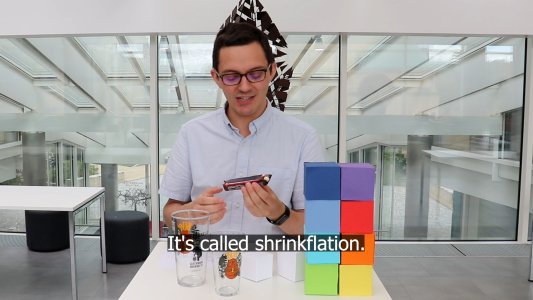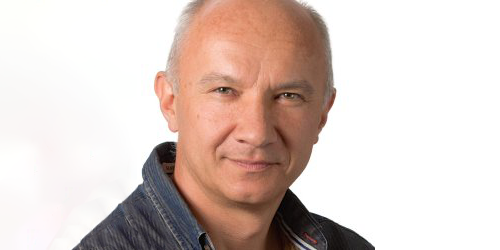Oxford Mathematician Artur Ekert has been awarded the Milner Award and Lecture by the Royal Society for "pioneering contributions to quantum communication and computation, which transformed the field of quantum information science from a niche academic activity into a vibrant interdisciplinary field of industrial relevance."
Professor Ekert said: "Unearthing the connections between cryptography and the foundations of quantum theory has been a captivating journey and it is very gratifying to have my work recognised. Quantum theory has undeniably unlocked numerous novel ways to understand and harness nature, including information, and I am excited to see what developments unfold over the near future."
Artur Ekert is a pioneer in the field of quantum information science, playing a leading role in transforming this field from a relatively obscure area of study into a vibrant, interdisciplinary arena of research. His invention of entanglement-based quantum cryptography forged connections between the foundations of quantum physics and secure communication. This led to a surge in research activity worldwide, and it continues to inspire new research directions.
In addition to his celebrated discovery that Bell's inequalities can be used for eavesdropping detection, Ekert has made numerous significant contributions to the theoretical foundations and experimental realisations of quantum communication and computation. These include his pioneering research on the universality of quantum logic gates, the development of the first methods for stabilising and protecting quantum operations, elucidation of the unifying structure of quantum algorithms, and the proposal of one of the first practical designs for quantum computation, among other achievements.
Artur adds: "the field of quantum technology is in a state of overdrive. Academia, industry, government agencies, spooks, journalists, and even my neighbour’s dog (trust me, it's an exceptionally bright dog) are completely enamoured with quantum computers and similar concepts. This social phenomenon fascinates me no end. Indeed, quantum theory has undeniably unlocked numerous novel ways to understand and harness nature, including information.
But what if, perchance, the theory is eventually refuted—for instance, if some unexpected, fundamental limitation thwarts attempts to build a scalable quantum computer? I would be absolutely thrilled to see that unfold! Such a development is, by all means, the most exciting prospect. It would not only instigate a revision of our fundamental understanding of the laws of physics but might also reveal new, potentially even more captivating types of computation. Because if something puts a halt to quantum mechanics, we should anticipate an intriguing new 'whatever-halts-quantum-mechanics' theory, followed by equally exciting 'whatever-halts-quantum-computers' computers."
Artur Ekert was born in Wroclaw, Poland and studied physics at the Jagiellonian University in Cracow and at the University of Oxford. He is a professor of quantum physics in Oxford, a fellow of Merton College and Lee Kong Chian Centennial Professor at the National University of Singapore and founding director of the Centre for Quantum Technologies (CQT) in Singapore. In addition to his many achievements listed above, Artur has also explored the connections between mathematical proofs and the laws of physics in his writings, as well as authored several popular articles on the history of science. Beyond academia, Ekert is a scuba diving instructor and an enthusiastic aviator, harbouring a special fondness for South African wine.











